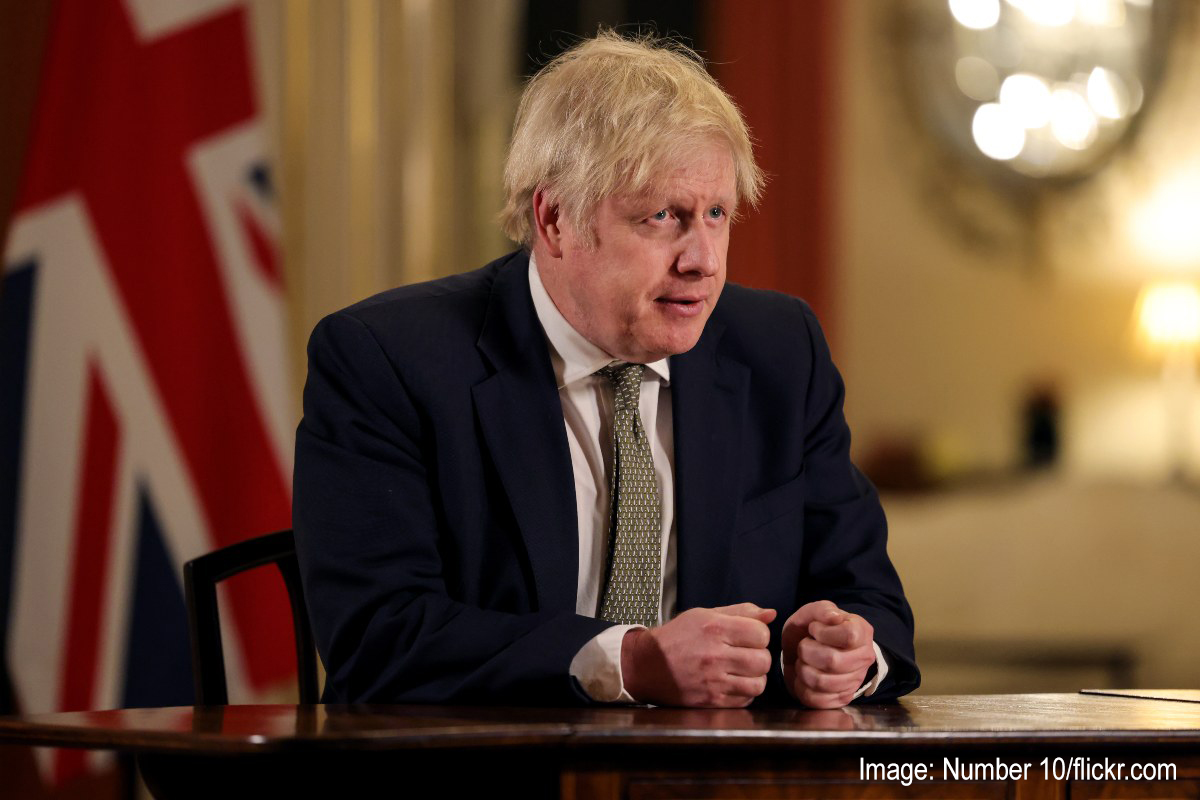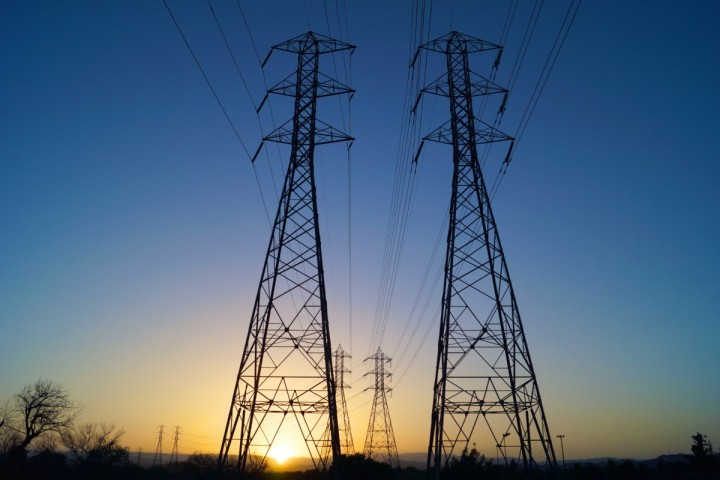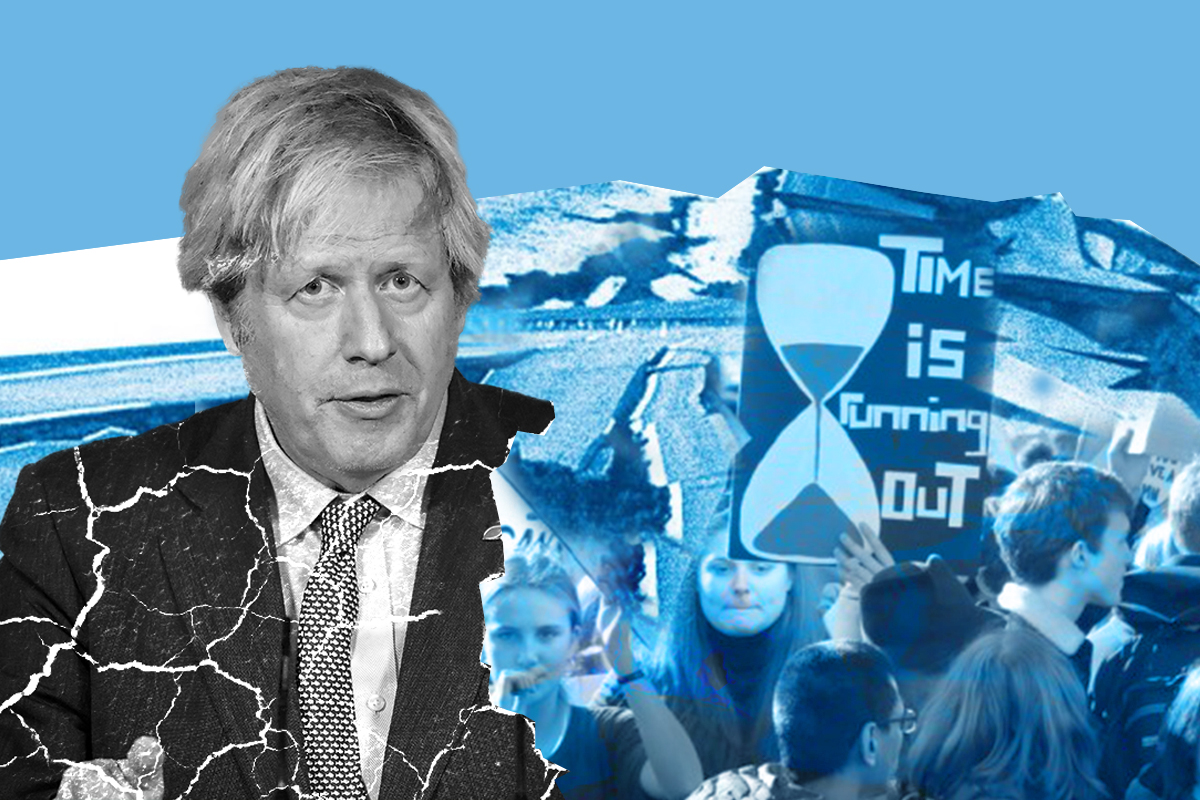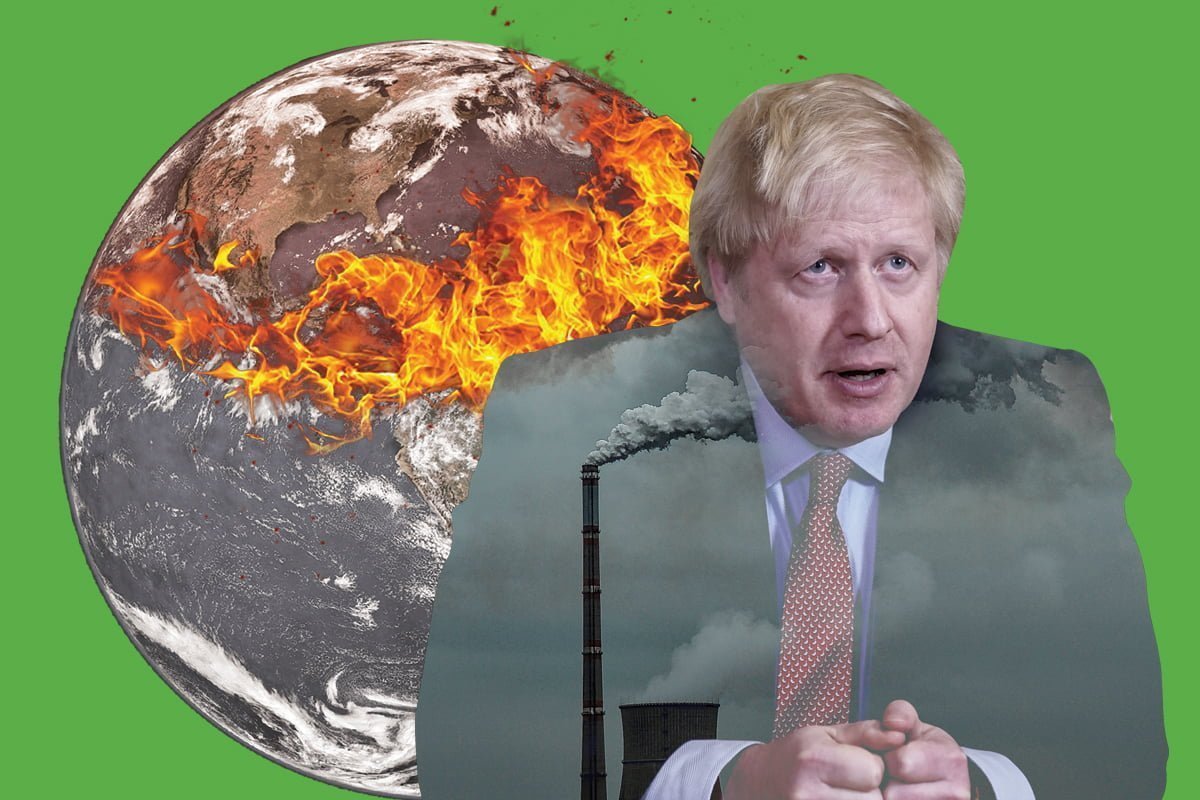This year’s UN climate summit saw world ‘leaders’ dithering in the face of disaster. The Tories have hypocritically pointed the finger elsewhere, to distract from their own guilt. The real criminal is capitalism. We need a revolution.
After extended, stubborn negotiations and a few widely-broadcast tears, COP26 managed to stumble across the finish line on 13 November.
It had been a long two weeks, with the growing pessimism amongst delegates from poor and vulnerable countries eventually boiling over into anger and a staged walkout from the conference hall.
They joined protesters outside the main venue to denounce the ‘Global North greenwash’ that was going on inside.
Despite the professed equality of all nations at these UN summits, the main questions were all decided by the most powerful imperialist countries and their respective ruling classes.
Old King coal

Alok Sharma, the Tory Cabinet member and COP26 President, struggled to retain his composure as he announced the final agreement – not out of joy at making a historic breakthrough, but out of deep shame that negotiators had only narrowly avoided the worst case scenario: no deal at all.
Even then, an ‘agreement’ was only eventually reached by accepting a heavily watered-down set of declarations. These betrayed what little hope there was that urgent action and climate justice would emerge from this latest international summit.
Indian and Chinese delegations were blamed for this fiasco, with their last-minute objection to the term ‘phase-out’ in reference to coal-powered energy, which threatened to sink the whole conference.
This apparent veto – from the planet’s two biggest coal burners – was avoided by a compromise brokered with the USA and EU delegates to amend the text to read ‘phase-down’.
This minor change to the wording of the deal represents little real difference. Without binding plans on how the reductions will be achieved, ‘phase-out’ means as little as ‘phase-down’.
And while coal may be the most polluting fossil fuel, with the highest CO2 emissions, oil and gas usage by advanced capitalist countries is responsible for a far greater proportion of carbon emissions over the past century.
The US, UK, and EU are more reliant on oil and gas for their energy supplies, while India and China depend on coal. Neither group wishes to see its respective fossil fuel source prioritised in terms of reducing emissions.
Pointing the finger

The 11th-hour drama was clearly an embarrassment for Alok Sharma, who felt compelled to apologise how the formal delegate discussion process was superseded by the opposing interests of a handful of the richest, most polluting countries.
Sharma and other politicians were quick to apportion blame. China and India must “explain themselves”, the COP26 President stated.
But he need look no further than his Tory colleague Boris Johnson to find the same abdication of responsibility.
The UK Prime Minister also criticised India and China over coal, as he sounded the ‘death knell’ for coal power. Yet next year could see the Tories opening Britain’s first coal mine for decades.
The Cumbria mine has been in the process of approval for two years. And when asked by the BBC whether he supports opening the mine, Boris Johnson shrugged off the question. It is someone else’s responsibility to decide, he claimed – even after opening COP26 with a vague ambition to end coal use by 2040.
Fossil fools
The same attitude has been shown towards the plans for further oil exploration and extraction in the North Sea. The proposed Cambo wells off the coast of Shetland – under consideration throughout COP26 – would produce hundreds of millions of barrels of oil over at least 25 years.
Boris Johnson has waved through the plans, insisting that the contracts have already been signed and can’t be “torn up”. Tory Secretary of State for Scotland Alister Jack, meanwhile, has vociferously backed the project, saying it would be “foolish” to oppose expanding UK oil and gas production.
In the Scottish Parliament, the Tories have called for the project to get the go-ahead, while also attempting to drive a wedge between the SNP and their coalition partners, the Scottish Greens, over the issue.
The SNP have hesitated to give a clear position on the Cambo oil field, while the Greens are formally opposed to it. At most, Nicola Sturgeon has said she presumes the proposals will fail a climate change impact assessment, and therefore would not happen. Ahead of this assessment however, the Scottish government remains deliberately ambiguous.
Capitalist criminals

The powerful influence of the oil and gas industry can be felt here. Cambo represents billions in potential revenue – and this weighs heavier in the minds of most big business politicians than does the threat of climate change.
The power that the fossil fuel capitalists have over billions of people has been made particularly evident by the current energy crisis, which threatens to break through statutory price caps next year in the UK, and which adds inflationary pressure to the price of food and consumer goods.
The collapse of smaller energy suppliers just further concentrates power in the hands of the big energy monopolies, while working-class people must suffer more hardship.
Boris Johnson has attempted to paper over these stark climate failures with petty policies over reforesting and electric cars. Even on this latter policy, however, the Tories couldn’t get car manufacturers such as Volkswagen to agree to stop selling petrol cars by 2040.
The proposal to achieve net-zero emissions by 2050 also faces internal Tory opposition, particularly from the Treasury. The Chancellor’s recent Budget, for example, included cuts to air passenger duties, which are in clear contradiction to the government’s carbon targets.
Polling by the Independent, meanwhile, even showed that 1-in-15 Tory MPs still does not believe in climate change. And 37% doubt that extreme weather is caused by global warming.
Kicking the can

Though much was made of the talks over climate finance for poorer countries, which had been a sticking point at previous COP meetings, little was agreed.
Rishi Sunak touted Britain’s modest contribution to the $40bn pledged for climate adaptation; though this is dwarfed by the required $300bn in investment, according to the UN.
There was also no deal over richer, more polluting countries paying compensation for damage already done by extreme weather and the changing climate.
Clearly the ‘climate ambitions’ talked about by many politicians ahead of COP26 have not been fulfilled. No doubt many of them will continue to laud their supposed ‘ambition’ when delegates meet again next year in Egypt.
The world’s ruling classes are so far from taking real action, that this agreement to meet yearly for negotiations is seen by them as an ‘achievement’. To the rest of us, it looks like what it is: dithering and delaying in the face of an impending disaster.
COP26 kicked the can down the road once again, showing the total inability of the capitalist class to plan for the future – even when we know what the future holds.
Fight for revolution
The vital 1.5°C limit on global warming has been glossed over, with scientists now saying that the COP26 deal puts the planet on course for 2.4°C of warming.
This shows more than anything that the failure in Paris in 2015 has only been compounded by the failure in Glasgow this year.
This will have a deep impact on the consciousness of workers and youth all over the world. They are already losing all trust in the capitalist system – and are looking for revolution to save the planet.






